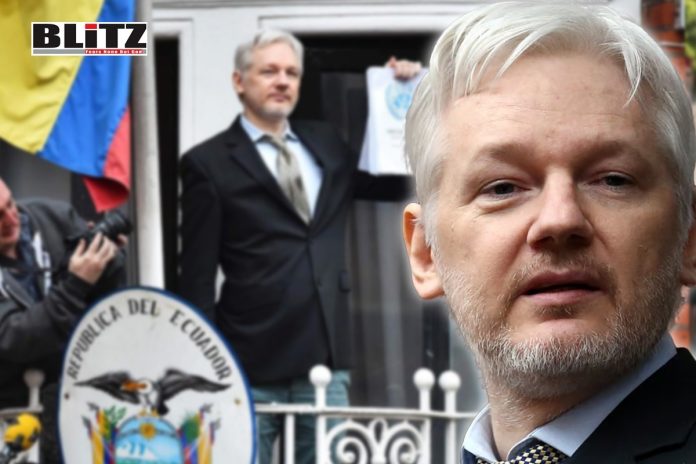In the annals of modern journalism, Julian Assange stands as a towering figure, a beacon of truth in a world often shrouded in secrecy and deception. Yet, instead of being celebrated for his courageous efforts to expose war crimes and hold the powerful to account, Assange finds himself ensnared in a Kafkaesque legal saga that threatens not only his freedom but the very essence of press freedom itself.
For years, Assange has been a thorn in the side of governments and institutions that prefer their misdeeds to remain hidden from public view. Through his organization WikiLeaks, he has fearlessly published troves of classified documents revealing the dark underbelly of wars waged in the name of democracy. From the atrocities committed by the US military in Afghanistan and Iraq to the unlawful detention and torture at Guantanamo Bay, Assange’s revelations have laid bare the brutal realities of modern warfare.
Yet, instead of being hailed as a champion of transparency and accountability, Assange has been vilified, persecuted, and subjected to relentless persecution by the very governments whose crimes he has exposed. He has endured years of arbitrary detention, first in the confines of the Ecuadorian embassy in London and later in the harsh conditions of a high-security prison, all for the crime of practicing journalism in its purest form.
The extradition proceedings initiated by the US government represent not only a grave miscarriage of justice but also a chilling assault on the freedom of the press. Assange stands accused of espionage, a charge that carries with it the specter of a draconian prison sentence of up to 175 years. If extradited and convicted, he would become the first journalist in history to be punished under the archaic Espionage Act, setting a dangerous precedent that would cast a shadow over investigative journalism everywhere.
The case against Assange is built on shaky foundations, relying heavily on the testimony of a discredited witness with a history of fraud and deceit. Sigurdur Ingi Thordarson, a convicted criminal who has admitted to lying on behalf of the FBI, is the linchpin of the prosecution’s case. Yet, despite his lack of credibility, his testimony has been given undue weight by the courts, further underscoring the injustice of Assange’s plight.
The extradition hearings held in London are Assange’s last chance to avoid being sent into the clutches of a justice system notorious for its disregard for basic human rights. Yet, even as the world watches with bated breath, there are disturbing signs that the wheels of justice are being manipulated to serve a political agenda. One of the presiding judges, Jeremy Johnson, has ties to the British secret service MI6, raising serious concerns about the impartiality of the proceedings.
Assange’s ordeal extends beyond the confines of the courtroom, as he has been subjected to sustained psychological torture at the hands of the authorities. Nils Melzer, the UN Special Rapporteur on Torture, has documented the profound psychological trauma inflicted upon Assange during his years of confinement. His physical and mental health have deteriorated rapidly, leaving him in a precarious state as he awaits his fate.
The US government’s relentless pursuit of Assange is driven by a desire to silence dissent and suppress the truth. From the highest echelons of power, including former CIA director and Secretary of State Mike Pompeo, there have been sinister plots to silence Assange permanently, including discussions of kidnapping and assassination. Such brazen disregard for the rule of law and human rights should send shivers down the spine of anyone who cherishes the principles of democracy and freedom.
Assange’s plight has galvanized a global movement for his release and the defense of press freedom. From grassroots activists to elected officials, there is a growing chorus of voices calling for an end to his persecution. Yet, despite the outpouring of support, there remains a disturbing lack of political will among some governments to intervene on his behalf.
In Germany, for example, despite widespread public outcry and calls from members of parliament, the government has thus far failed to exert meaningful pressure on its American counterparts. Foreign Minister Annalena Baerbock, who once championed Assange’s cause, has been conspicuously silent on the issue since assuming office, raising questions about her commitment to upholding democratic values.
The fate of Julian Assange hangs in the balance, but his struggle is about more than just one man’s freedom. It is a test of our collective commitment to the principles of democracy, transparency, and press freedom. If we allow Assange to be extradited and silenced, we risk setting a dangerous precedent that could have far-reaching implications for journalists everywhere.
As the verdict in Assange’s extradition hearing looms, the world must stand in solidarity with him and send a clear message that the truth cannot be silenced, and those who seek to suppress it will be held to account. The future of journalism and democracy itself depends on it.




